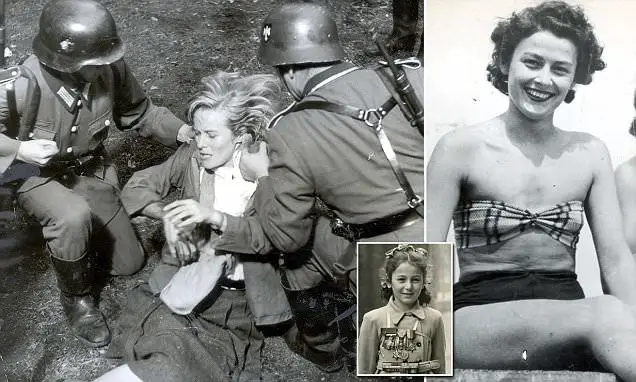Stutthof Trials: The Powerful Reminder for Human Rights
The Stutthof concentration camp was one of the deadliest concentration camps established by the Nazi regime. Its operation led to the deaths of an estimated 85,000 prisoners due to inhumane living conditions, forced labor, medical experiments, and mass murder carried out by the camp’s staff. The Stutthof trials were a series of war crime tribunals held in the aftermath of World War II to bring justice to the victims and establish legal and moral precedents for prosecuting war crimes and crimes against humanity. Here, we’ll explore the significance of the Stutthof trials and their impact on the fight against extremism and totalitarianism.

The Establishment and Operation of Stutthof
Stutthof was established in September 1939, just a few weeks after Germany invaded Poland. It was located near the Polish city of Gdańsk and was initially used to hold Polish prisoners of war. However, as the war progressed, the camp became a place for the imprisonment and extermination of Jews, Romani people, and other groups deemed undesirable by the Nazi regime.
The living conditions at Stutthof were horrendous, with prisoners forced to endure overcrowding, malnutrition, and disease. They were also subjected to brutal forced labor, with many prisoners dying from exhaustion, exposure, and abuse. Medical experiments were also carried out on prisoners, including testing of vaccines and treatments for various diseases, which often led to the death or severe suffering of the test subjects.

The Stutthof Trials
The Stutthof trials were held in Gdańsk between 1946 and 1949 and saw the conviction of 48 former staff members and officials of the camp. The first trial, held in 1946, resulted in the conviction of 11 former Stutthof staff members for crimes including murder, torture, and medical experiments on prisoners. Ten of the defendants were sentenced to death, and one was sentenced to life imprisonment.
The subsequent trials continued to bring to justice those responsible for the crimes committed at the camp, including high-ranking officials such as the camp commandant and the chief medical officer. The trials were significant in establishing legal precedents for prosecuting war crimes and crimes against humanity, particularly regarding the concept of individual responsibility for such crimes. The trials also highlighted the horrors of the Holocaust and helped to educate the public about the dangers of extremism and totalitarianism.

The execution of the SS overseers of the Stutthof concentration camp: Becker, Klaff, Steinhoff, and Pauls on July 4, 1946, with the priest.
A 96-year-old woman who was a secretary at a Nazi concentration camp has gone on trial for complicity in the murder of more than 11,000 people, weeks after she attempted to flee proceedings.

Irmgard Furchner, who worked as a secretary for the commandant of Stutthof camp in Poland during the Nazi occupation, is being tried in a juvenile court due to her age at the time. She is accused of handling transport lists of detainees to Auschwitz and dictating orders from the commandant, making her aware of what was happening in the camp. However, Furchner denies personally committing any crimes.
Eyewitnesses have described the inhumane treatment of detainees at the camp, including being tricked into believing they were being measured for their height, only to be shot, and gassed with Zyklon B. The co-plaintiffs from America, France, and Austria have asked the court to reconsider their request to visit the memorial site at Stutthof, saying it would provide important evidence for the trial and closure for those affected.
Eye-opening images from Concentration Camp Stutthof trials


Notice the carefree smile of the good-looking girl at the front. (with the exception of the man behind her), her smile contrasts with the other’s grim faces. She is Jenny Wanda Barkmann. A feisty 24-year-old Hamburg lass. She is smiling because she has nothing to fear. Jenny was innocent in more ways than one. (Read more Eye-opening images from Concentration Camp Stutthof trials)
The Legacy of the Stutthof Trials
The Stutthof trials were a key part of the broader process of reckoning with the crimes of the Nazi regime and the Holocaust. They served as a reminder that those responsible for such crimes would be held accountable for their actions, and helped to establish a foundation for future efforts to promote justice, accountability, and reconciliation in the aftermath of mass atrocities.
The trials were also significant in establishing legal precedents for prosecuting war crimes and crimes against humanity. The concept of individual responsibility for such crimes was particularly important, as it emphasized that individuals cannot simply claim they were following orders or acting under duress as an excuse for committing atrocities. This has helped to ensure that those who commit such crimes in the future will be held accountable for their actions.
Lastly,
The Stutthof trials were a significant turning point in the global fight for justice, especially for those affected by the Holocaust. These trials played a crucial role in holding perpetrators accountable for their crimes against humanity and established essential legal and ethical standards.
Through these trials, we’ve learned from the horrific events of the Holocaust and have recognized the importance of human rights and tolerance. By remembering and acknowledging these atrocities, we can strive to prevent them from ever happening again.
Overall, the Stutthof trials remind us of the importance of justice and the need to continue to promote human rights and equality. It is only through these efforts that we can create a more just and compassionate world for all.

Pingback: England's Most Wanted Criminal: Charles Peace's
What does your comment mean about Jenny Wanda Barkmann having nothing to fear because she’s innocent? Wikipedia says she was executed after these trials.